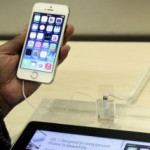 It’s rare to do anything these days without first consulting the web to see what other people say about your intended purchase. Whether it’s buying a book or a holiday, there are usually a host of sites offering consumers a way to leave feedback on their purchase. Research suggests that these reviews are often the most trusted source of information when it comes to making that buy.
It’s rare to do anything these days without first consulting the web to see what other people say about your intended purchase. Whether it’s buying a book or a holiday, there are usually a host of sites offering consumers a way to leave feedback on their purchase. Research suggests that these reviews are often the most trusted source of information when it comes to making that buy.
This trend has spread to the healthcare sector too. Here in Britain you can find reviews of your local GPs and dentists online, whilst US sites such as healthgrades.com, ratemds.com and vitals.com are increasingly popular.
A new study has explored just how well known such review sites are, and indeed how useful people have found them in locating a medical professional. The study, conducted by researchers at the University of Michigan Medical School, found that around 65% of people are aware of such review sites, which compared to 87% awareness of car review sites and 81% for restaurant ones.
Not only were people not very aware of medical review sites, they also didn’t seem to find them very useful. Just 23% of respondents said they had used such sites in the past year, with just 35% of those having used their findings to select (or avoid) a particular doctor. The main reason for not using the ratings information was that it wasn’t trusted.
“Clearly some people don’t trust the sites. But at the same time, we found a substantial percentage who had not only visited the sites but used them to make decisions,” said study researcher Dr. David Hanauer, an associate professor in the Department of Pediatrics at the University of Michigan Medical School.
“Consumers are used to looking up ratings, so it is not surprising that they would turn to this familiar online medium to also seek physician ratings,” Hanauer said.
Just as with reviews in other fields, there is a clear concern around crowdturfing, or the submission of fake reviews in lay terms. Studies have suggested it’s far from uncommon for doctors to write their own reviews, and whereas steps are clearly afoot on sites such as Amazon and Yelp to only show verified reviews, such moves have yet to migrate to the healthcare sites.
“My personal opinion is that it is difficult to trust the sites partly because of a lack of transparency about who is leaving the ratings,” Hanauer said. “It’s a difficult problem to solve because some people might not want to leave ratings or comments if their identity were disclosed, but at the same time, anonymous feedback leaves sites open to misuse and abuse. Even if the ratings are all true, the small number of ratings for many physicians raises questions about how representative they are.”
An alternative to the review sites may be on the horizon in the form of mobile apps such as ER Wait Watcher and iTriage. These are mobile apps that aim to provide people with real-time data on waiting list times, so you can see quickly and easily which facility might be best placed to serve you in the event of an accident.
Users typically have to just enter in their current location, and then the apps locate the institution likely to see them first. The service bases its result on factors such as average reported waiting time at each facility, how far it is away from you, and even live Google traffic reports. Users are presented with a list of possibilities, with an estimated time given for both being seen, sent home, given medication and so on.
The site works on the premise that the nearest hospital isn’t necessarily the one that will get patients the treatment they need most speedily. Suffice to say, these kind of apps are in their infancy, and do rely on quality data to make their services useful. They do represent a nice development however and help give us more information with which to hopefully make the best decision.
Not only doctors or other service provider submitting their own reviews but also lots of them hire professionals to write glowing reviews for them at a price. So it is better to listen to word of mouth and even the apps you suggested sound interesting.
Aye, crowdturfing is rife, but it's a bit poor when you can't trust doctors to do things the right way isn't it?
So doctors, who swear by the hippocratic oath to be ethical, are faking their own reviews? You couldn't make it up.
Exactly.
Hopefully they’ll gain some lessons from other fields that are struggling with a similar issue of reliability.
Interesting. I've used the NHS reviews a lot for GPs and dentists, but not sure it would be of similar use for infrequent procedures (ie surgery).